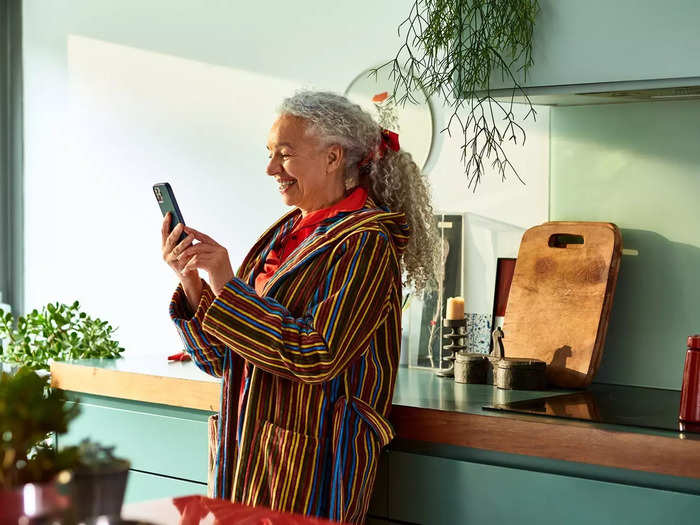MoMo Productions / Getty Images
- Loving relationships with friends, family, and romantic partners are known to be good for mental health.
- They can also have physical benefits, various studies suggest.
No matter how old you are or where you live, there seems to be one simple investment that could have a major payoff for your health: Creating a life that's rich in loving relationships.
Strong connections, much like consistent exercise and healthy eating, can greatly influence how long someone lives, Dr. Robert Waldinger, the director of the Harvard Study of Adult Development, previously told Business Insider. (Just look at 99-year-old former President Jimmy Carter, who was married to his late wife Rosalynn for 77 years.)
Waldinger explains how strong connections lead to increased happiness, as well as better physical health in his new book, "The Good Life: Lessons from the world's longest scientific study of happiness." Other aging researchers have found results similar to Waldinger's, finding that pursuing companionship can curb stress, a major factor in developing chronic pain and disease, Business Insider previously reported.
Here are many of the ways love can help your mind and body feel better.
Making time to visit loved ones could increase your lifespan.
Spending time with loved ones could help increase your lifespan. Jose Luis Pelaez Inc/Getty Images
There's some evidence that consistently getting together with family and friends could help you live longer, according to a November study from researchers at the University of Glasgow.
The researchers asked 58,146 UK adults between 37 and 73 questions about their close relationships, like how often they felt lonely, and how often friends and family visited, and whether they lived alone.
When the researchers followed up 12.6 years later, they found that study participants who reported never having loved ones visit were 39% more likely to have died in the years following their initial survey.
The researchers didn't measure the quality of participants' social interactions, which could have also had an impact on study results, Business Insider previously reported.
The study results aren't definitive, and can't prove with certainty that a lack of time with loved ones causes death, lead study author Hamish Foster previously told Business Insider.
Loving relationships dull physical pain, a study found.
Love could make physical pain feel less acute. Hinterhaus Productions/Getty Images
Being generally happy in your relationship could help curb aches and pains that comes with age, according to research out of Harvard, Business Insider previously reported.
Waldinger and his Harvard colleagues surveyed coupled-up people in their eighties and found that those who were satisfied with their partners could keep their moods in check, even on days when their physical pain was worse than usual. But study participants who were in unhappy relationships seemed to have worse moods, and more emotional pain, and days when their bodies hurt more.
Similar but larger studies, from the National Institutes of Health in Baltimore, and St. George's University of London, have found similar results.
Being in love boosts your immune system, experts say.
Falling in love could have physical health benefits, according to some research. Alistair Berg/Getty Images
Researcher at Tulane University and UCLA did a two-year study study of 47 college-aged women, asking them if they had fallen in love.
When they looked at activity in the women's immunity genes, which activate to respond to illnesses in the body, the researchers found that women who were in love had more immunity gene activity than women who weren't in love, Business Insider previously reported.
This could potentially suggest that feeling love could provide additional protection against disease, though more research is needed due to the small study size and inconclusive results.
You could lower your risk of heart attack.
A loving relationship could potentially prevent high blood pressure, some studies show. Getty Images
Prolonged stress, a potential byproduct of social isolation and loneliness, can lead to chronic inflammation in the body, potentially increasing a person's risk of certain health issues like heart attacks and strokes, Business Insider previously reported.
Since spending time with loved ones has been shown to reduce stress, pouring into those connections could pay off for someone's long-term wellbeing, according to Rose Anne Kenny, the chair of medical gerontology at Trinity College Dublin, Ireland, and the founding principal investigator for The Irish Longitudinal Study on Ageing (TILDA).
A 2019 study supports Kenny's TILDA findings. According to researchers at the University of Arizona, thinking of or being near a romantic partner can lower someone's blood pressure when they're exposed to stress.
Feeling connected to others decreases feelings of depression.
Treating yourself to happy hour with friends can be healthy, according to some of the longest-living people on earth. The Good Brigade/Getty Images
To reap the health benefits of your relationships now, a Harvard professor suggests sending a quick text message
Building strong relationships takes small yet consistent effort. 10'000 Hours/Getty Images
Waldinger, the Harvard professor and longevity researcher, said that strengthening your relationships to reap the health benefits can be as simple as sending a brief text message.
"Sometimes when I give talks I'll say, 'okay, now everybody take out your phone, think about somebody you want to connect with, and send a text,'" Waldinger previously told Business Insider.
He said the message should say something like, "Thinking of you and wanted to say hi," or "I just wanted to reconnected and say hi."
Adding a call to action, like asking your loved one out for coffee or a walk is another helpful approach, Waldinger said.
And when you're spending time with these cherished people, be sure to tell them why they mean so much to you, according to Waldinger. Your health will thank you for it.






